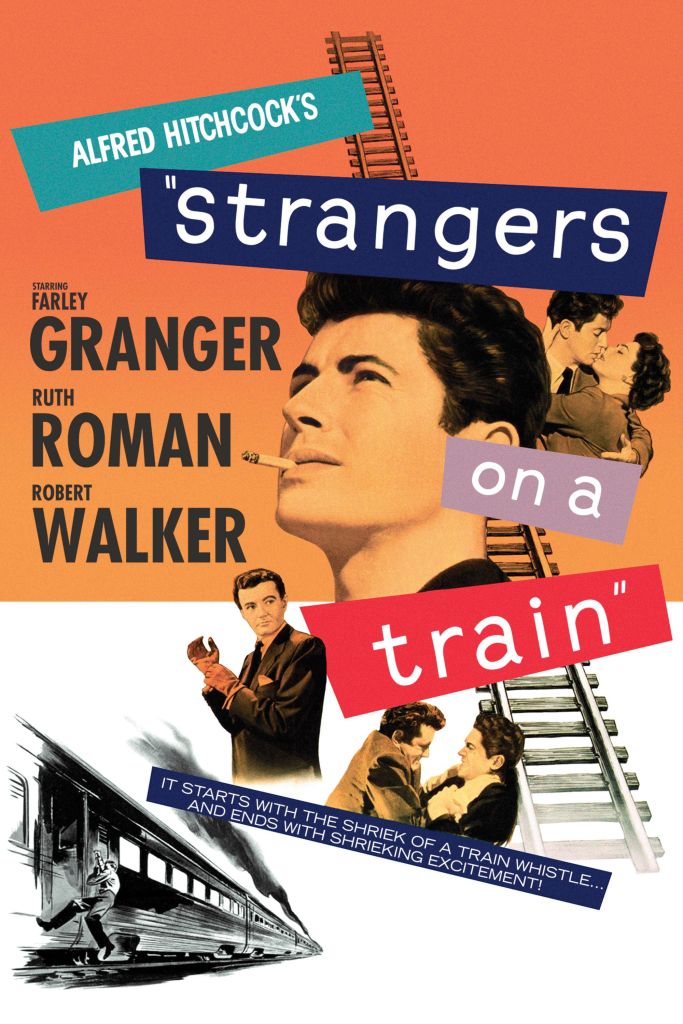2. A black and white film: Strangers on a Train (1951)

List Progress: 7/12
A stranger bursts into your life and turns it completely upside down, sending you spiraling into chaos. We all interact with so many people in any given day, that there’s always a haunting chance that any one of them could be the one to change everything. In Alfred Hitchcock’s 1951 classic Strangers on a Train, a tennis player is approached by the titular stranger, who offers to kill the player’s inconvenient estranged wife if he will return the favor and kill the stranger’s tight-fisted father. The tennis player brushes off the initial exchange as nonsense, but when the stranger does follow through and murder his wife, he is forced to content with this horrible situation that he’s been thrust into and keep his hands as clean as possible. The initial set-up is haunting and tense, and even if the film cannot maintain that tension fully until the end, what does work works exceptionally well.
The shining aspect of the film is the performance of Robert Walker, the actor playing Bruno Antony, the stranger. He exudes genial menace in a way that is so engaging to watch; he is absolutely convincing as someone who has fixated on an idea and will accept no deviation from his plan. In a tragic turn, Walker died months after Stranger premiered, at the age of 32, and the world missed out on what could have been an incredible career. His chemistry with the other lead, Hitchcock veteran Farley Granger, is palpable.
The third act is where Strangers on a Train loses steam, as it can’t seem to raise the stakes further after a confrontation at the end of the second act. What starts as a tense race against the clock turns into a plodding pursuit and so much of the energy of the first two acts is stolen. This is apparently a large change from the original Patricia Highsmith novel, and does make one wonder if studio mandates interfered with the final product.
Strangers on a Train has a lot to recommend it, and is a strong example of Hitchcock’s filmmaking and cinematography, but the final act stops it from being something truly great. But for Walker’s performance if nothing else, this is a ride worth taking.
Would I Recommend It: Soft yes.